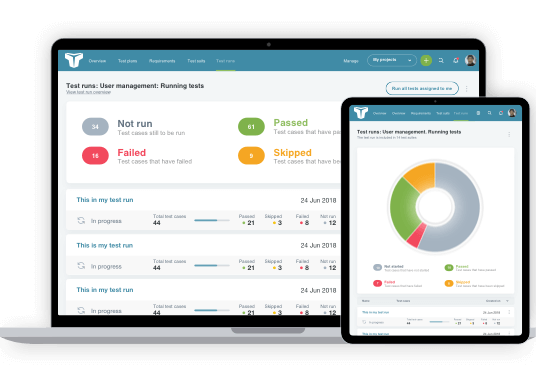In any profession, a big key to enjoying your job is finding a way to stay motivated. Being challenged to learn new skills or to take on new responsibilities is important to both job satisfaction and career progression. In the software industry, developers, software testers and others involved in the development process must continuously stay up to date with the latest tools, languages, and processes so they can continue to excel in their jobs. Often times, moving with the industry is required just to stay employed.

This article is written specifically for those in the software testing world because as any tester knows, executing test cases can become tedious – especially when they are all done manually. Testers must be proactive when it comes to keeping themselves motivated so I’m going to talk about how to do exactly that.
Tips for Staying Motivated
On the Job Training
In some workplaces, the employer will periodically provide opportunities for growth, and you will regularly be challenged in ways that increase your skill set. This should be a priority for any company that values their employees and considers the long-term benefits of engaging their staff with positive challenges. A Quality Assurance manager should recognize the potential for testers to become burnt out from manual testing. If they don’t, they will burn through employees and the remaining testers will become less effective.
Ask More of Your Employer
Access at work to relevant training and challenges that promote growth should not be regarded as a benefit but a requirement.
In many workplaces, a new employee will learn new skills or tools to do their job, and then after the first six months to a year of employment, the growth slows significantly or stops. To continue their growth, the employee would need to change positions within the company, get a promotion or leave the company. There are many factors to consider when it comes to being happy in a job, but I believe being challenged on a consistent basis is absolutely necessary to feel the time spent on the job is not just a paycheck.
Why does Professional Growth Slow?
Part of the problem is the stream of constant project deadlines that don’t allow for research into improving process and efficiency. A good example of this occurs in software testing, specifically when the urgency to complete a manual testing software project outweighs the need to implement automation. When this happens once or twice to meet big deadlines, it’s understandable. Sometimes, tasks must be completed to satisfy a client or deliver on an important milestone. The real issue occurs when this happens repeatedly for many months or years leading employees to become burned out. It can be disheartening when the process that badly needs improvement will not become a priority any time soon. When testers suddenly realize they have been manually testing something that could have been automated far too long ago, their desire and interest fades away. They find it hard to continue manually testing the application with the same enthusiasm they had at the start of the job. If you feel like you have just been pushing buttons for months or years at this point, it is time to either push harder to improve the testing process or move on.
Automation is just one example of an improvement a software organization might repeatedly put off in favour of meeting regularly urgent deadlines and as a result, slow the growth of the employees. Other examples might include the time it takes to switch to a new tool, upgrade an existing platform or simply spend the money and time required to train for such a change.
Conduct Research or Propose an Improvement
So, before you up and leave the company in search of something that will scratch the itch to learn a new tool, language or process, perhaps you can do a bit of research and propose a change yourself. If the response is not positive or it becomes clear that there will likely not be any changes made to improve, then it’s probably time to look at options seriously.
What Next?
If you don’t feel like you are learning on the job or being given opportunities to expand your skill set, what should you do? Is it time to change positions for this reason alone? It might be – and I’ll explain why. There are ways to satisfy the need for professional growth that could allow you to stay where you are, but an employer must be open to you spending time on those endeavors, and it’s not always straightforward. The next step will be one or both of the following options:
Growth from Change
I have moved around fairly often in my software testing career. Over the past 12 years, I have worked at six organizations as a software tester, and my tenure within each company has ranged from 10 months to almost five years. At each place of employment, I have gained some extremely valuable experiences. While testing software has always been my primary job duty, each workplace provided a slightly different role, which required learning new skills and processes. I also found that each team I worked with offered a unique perspective on software development. There were similarities between each organization and certain differences that have helped me gain new perspectives. This factor alone has provided invaluable experience.
Invest in Yourself

The main thing to remember is that you need to invest in yourself continually. YOU are your best resource. If you are in a software testing job that isn’t providing the development opportunities you desire, make sure to keep up to date with what the market needs are. Periodically look at job postings, even if you have no plan to leave your job. You will be able to identify skills that are in demand and spend some time on these outside of your 9-5 job. Eventually, you may be able to use these skills in your current role or impress a prospective employer with your self-trained knowledge. There are ample online software testing training courses (some paid, some free), that can be utilized to keep yourself up to date.
Conclusion
Set aside time each day for a bit of training for yourself. It doesn’t need to be a lot. Even 15 minutes a day working on a new skill could be extremely valuable. The key is consistency. Make it a priority to invest in yourself. While the work you do to invest in yourself may not deliver a paycheck today, it will provide a better paycheck in the future. In the meantime, remembering to invest in yourself will keep you challenged, motivated and happier on the job.

